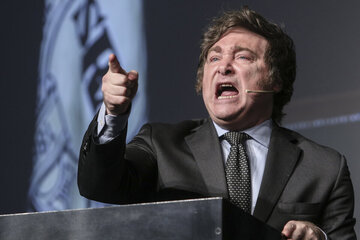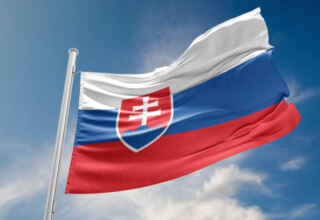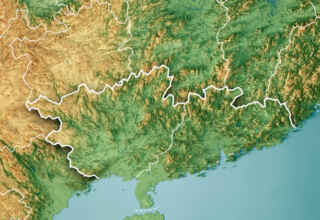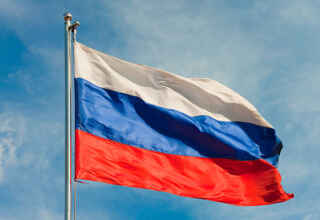
On Sunday, 19 November 2023, the economist Javier Milei won the second round of the Argentinian presidential elections with almost 56 percent of the votes. His victory was greeted with opposing feelings but almost all the major international stakeholders congratulated Argentina for having held free and democratic elections. Nonetheless, there are many reasons why Argentinians and foreign actors worry about this takeover.
Milei, a self-proclaimed anarcho-capitalist, defeated the current economy Minister Sergio Massa and pledged a radical change, breaking the hegemony of the two leading political forces on the left – the Peronists – and right – the Together for Change conservative blocs. Indeed, Milei presented himself under La Libertad Avanza (LLA) coalition, the 2021-born extreme right political party. For instance, there is no doubt in defining Milei as a populist. His political party and his governmental ideas reflect the trend that Europe is living. Moreover, in recent times many other Latin American countries marked a vote out in elections, bringing to power the current political parties’ opposition. Discussion over the democracy in Latin America is thus hyped. Nonetheless, it’s the economic instability of these national governments that has affected citizens’ opinions. Milei has been particularly popular for this reason, as he proposed a drastic reform of the institutions and the economic sector. He is appreciated even among the young, who have grown up seeing their country lurch from one crisis to another. Indeed, Argentina is facing a large financial crisis with an inflation rate of 140 percent that has left 40 percent of its citizens in poverty. According to the winning coalition, the ones to blame are the politicians who protracted the Peronist policies, causing widespread corruption among the political class and a struggling economy.
Among his campaign proposals, which are going to be dominant in the short-term, there is a “chainsaw” to the state, meaning a cut in public spending by up to 15 percent of GDP, and the elimination of the central bank, hence stopping the printing of money. He aims to replace the pesos with the US dollars. Nevertheless, he must win first the support of the Congress as there is also a problem with a lack of governors, which is instead necessary to build consensus in order to capitalize on electoral momentum.
Security emerged as a key element in the electoral campaign ahead of the presidential primaries and a single case of an 11-year-old girl attacked by two delinquents, who later died in hospital, constituted the basis of this propaganda. A policy of “zero tolerance” against crime is elaborated through the proposed reduction of the minimum age of legal responsibility, the prohibition of entry into the country of “foreigners with criminal records” and the deregulation of the “legal” firearms market, which is still controversial. National law reforms also include the privatization of state-owned oil companies and media outlets. In addition, a revision of the values of equality and social justice is foregone and consists especially of the trimming of his cabinet down to eight ministers, getting rid of the Ministries of Health and Education among several others. Being also a former TV commentator, he demonstrated his communication and persuasion skills to tap into public anger over the country’s economic woes and its ruling political caste. On these lines, he took inspiration from former US President Donald Trump and adopted, with small changes, his slogan, proclaiming and wearing hats with the words “Make Argentina Great Again.” However, he pleased the US current foreign policies in advancing the dollarization and promising to dump Brazil and China as trade partners. He has often referred to them as “communists”, addressing current biases as “lies of socialism”, like for climate change and abortion, claiming that sex education is a Marxist plot to destroy the family. Yet, it is not clear why he disguises so much environmental policies, as neither Brazil nor China are great “green promoters.” What is sure, is that China and Brazil were the major creditors for Argentina’s struggling economy.
Milei’s plans for Argentina’s foreign policies were never disclosed. However, he announced that his first trip overseas as a President would be to the United States and Israel. With this affirmation, he officially sided in the complex situation regarding the Palestinian war, as robust support for Israel was anticipated too. Whether or not the US were involved in the electoral campaigns of Argentina and Milei’s party is still too soon to assess, but past experiences tell us that it is a possibility. Furthermore, agreements with the BRICS won’t be advanced. Although the BRICS invited Argentina to join them as a full member in August 2023, partly thanks to the support from China, the country would have been a disadvantage for the group even before the Milei presidency. Argentina’s presence in the BRICS could have undermined Brazil’s position by adding to the group another country from the same continent and a main commercial competitor in the agro-industrial markets. On the other side, Argentina was strategically convenient for Russia as from 2014 they signed some 20 agreements on investment, trade and nuclear energy. But Russia is now in war with Ukraine therefore any enlargement of the BRICS would have missed international credibility.
So far, Milei has not produced a positive impression in front of the international community. He aims to pull Argentina out of the Southern Common Market, e.g. the Mercosur, and prospects of cooperation appear for several reasons complicated, in particular for international organizations like the European Union, as Milei has already shown dislike towards supranational institutions. However, the Presidential inauguration is expected on December 10. Anything could happen and concerning his political promises, it is easier said than done.
By The European Institute for International Law and International Relations.
References












